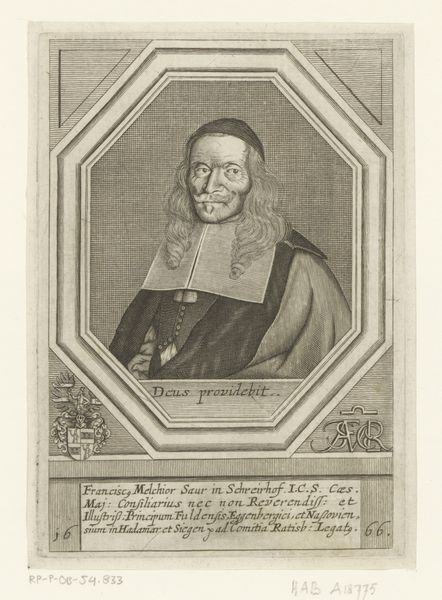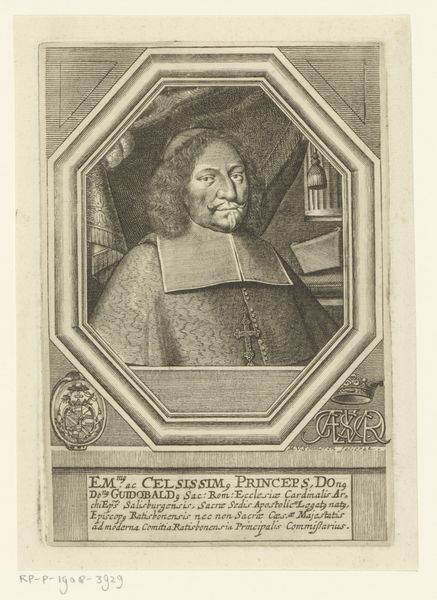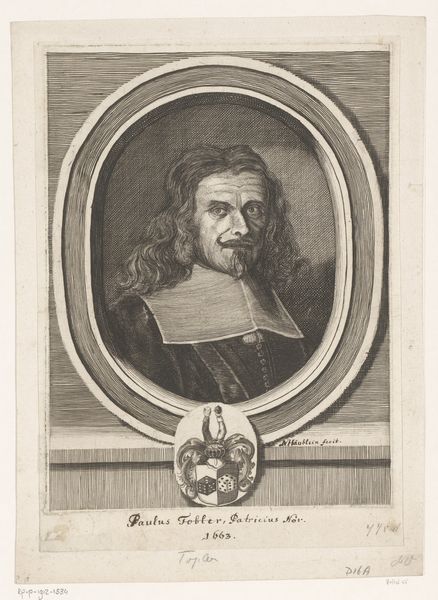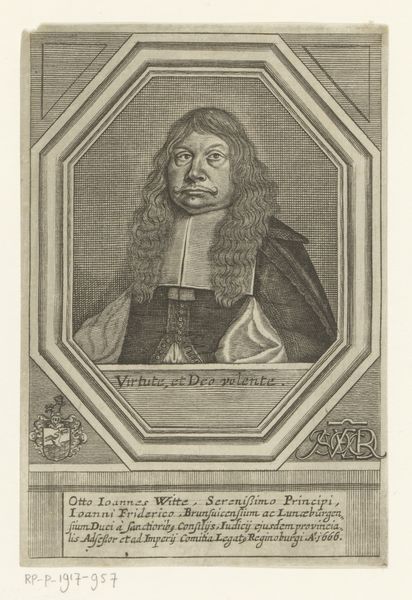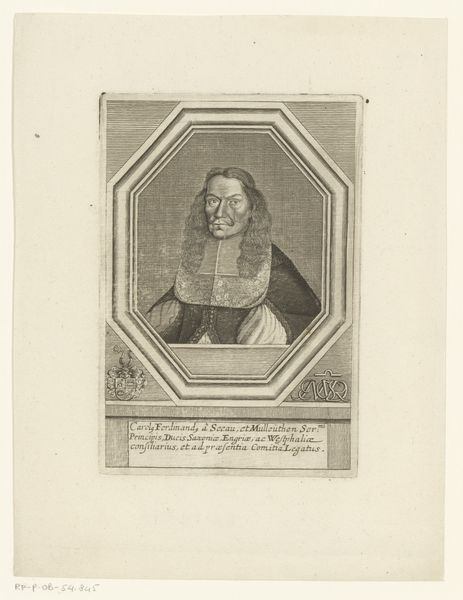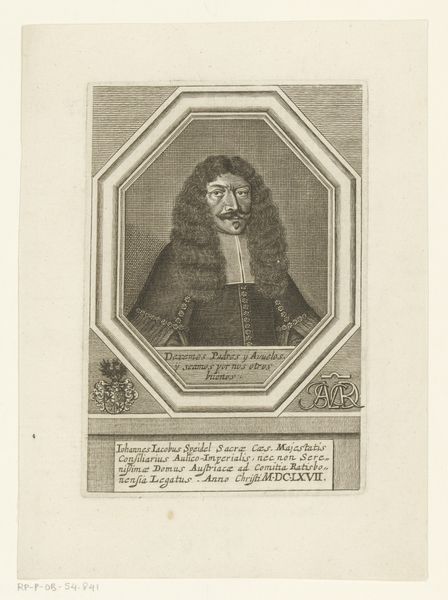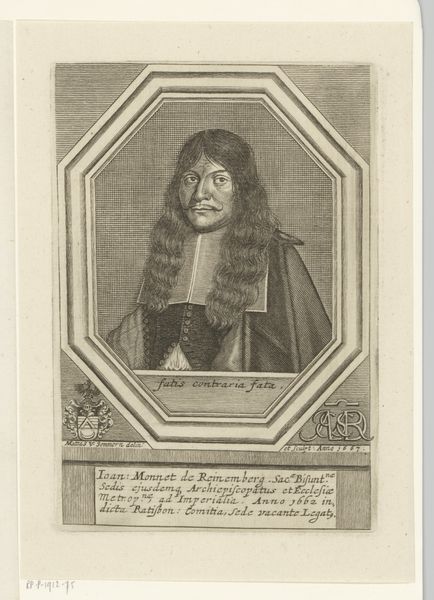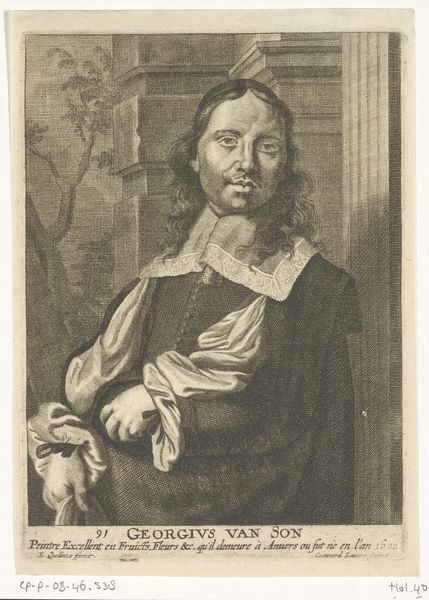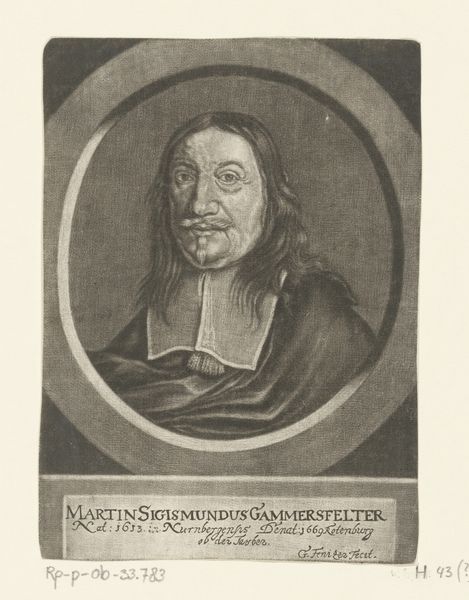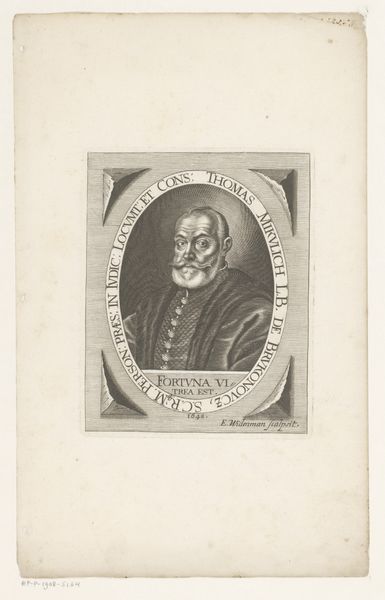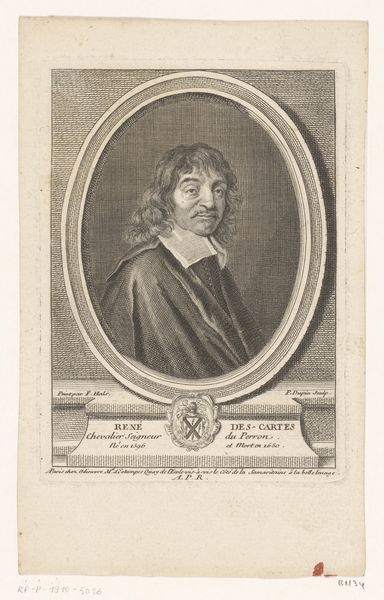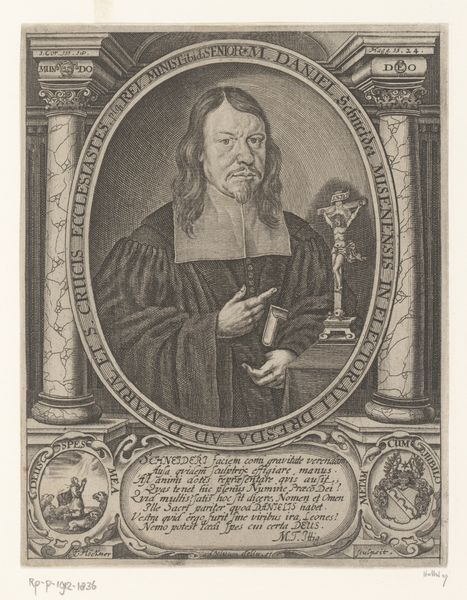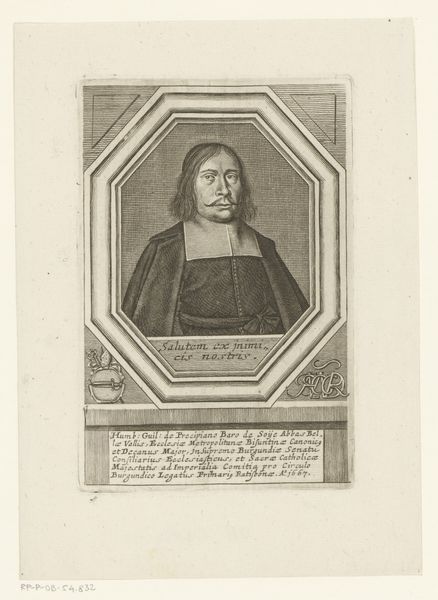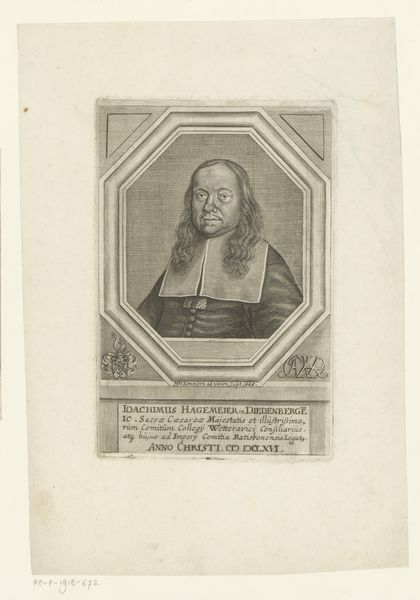
engraving
#
portrait
#
baroque
#
history-painting
#
engraving
Dimensions: height 152 mm, width 103 mm
Copyright: Rijks Museum: Open Domain
Editor: So, this is "Portret van Zacharias Stenglin," made in 1667 by Matthias van Sommer. It's an engraving, and there's something very official and perhaps a little severe about his gaze and attire. How do you interpret this work? Curator: I see it as a fascinating example of how the Baroque portrait served specific socio-political functions. Consider the date, 1667. The Dutch Republic was a major power, deeply engaged in trade and diplomacy. Sommer's engraving not only depicts Zacharias Stenglin, but also broadcasts his status and roles: advisor to the Duke of Würtenberg, Syndic of Frankfurt, and legate to the Diet of Ratisbon. Editor: You mean it was like an early form of PR? Curator: Precisely! Engravings like these were often commissioned to circulate among elites, reinforcing social networks and power structures. The formality of the portrait and even the inclusion of the coat-of-arms aren't simply aesthetic choices; they're crucial to understanding the political role art played. How do you see the relationship between image and text? Editor: I didn't really consider the text below the portrait, but the way it lists his titles does suggest that reputation and power were things to be communicated in very specific terms. Curator: Exactly. The artwork is doing political work, shaping how Stenglin and by extension, the entities he represents, were perceived. Editor: So, it’s less about capturing a likeness, and more about creating an impression of power and legitimacy? Curator: Absolutely. And think about where this print might have been displayed or kept: in a collection alongside similar portraits of important figures, further solidifying Stenglin’s place in the social hierarchy. Editor: That really shifts how I see this portrait! I was focused on the individual, but now I see how it fits into a much larger system. Curator: Understanding the historical context, particularly the role of institutions and social power dynamics, enriches our understanding and reveals layers of meaning beyond simple representation.
Comments
No comments
Be the first to comment and join the conversation on the ultimate creative platform.
